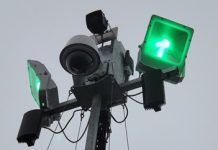A new report, ‘Taking the Pulse of Government Cybersecurity 2020’ by Nominet surveyed government cybersecurity professionals in the U.S., U.K. and Middle East. The research was conducted by the Information Security Media Group and shows a clear perception that collaboration with the private sector is desirable in order to keep pace with change and innovation to ensure robust national cyber defense.
The survey revealed that government cyber security leaders wish to work more closely with the private sector in order to keep pace with cyber threats:
• 65% of government respondents thought the pace of change was too slow in comparison to enterprise and 81% believed that a slow pace of change can negatively impact national cyber defense
• 81% also believed that collaboration with the private sector could improve the pace of change
• 99% of respondents said they could learn about innovation from tech and private sector companies and only 22% said that they are more cyber secure than most private-sector entities
The research also gave an indication of some of the government sector’s greatest cyber security concerns and how they would like to see these addressed:
• 45% said phishing poses the biggest risk to government cyber defense overall
• The highest ranked risk specifically for 2020 was remote working (34%). Three quarters of respondents felt their agency is more susceptible to cyberattack when the workforce is working remotely
• The top choice for more investment in cyber security was in broad solutions that provide a layer of defense (51%)
One security concern specific to governments is the risk to elections. Perhaps unsurprisingly, in the context of the U.K.’s recent report on attempted Russian interference with elections, 71% of respondents believe the outcome of elections could be impacted by cyberthreats in 2020. The top two election security-related concerns are fake news/dissemination of misinformation (44%) and a lack of trust in the democratic process (30%).








